
As a lighting contractor, purchasing chandelier lights in bulk is a strategic decision that can significantly impact your bottom line. While local distributors may seem like a convenient option for sourcing these fixtures, there are considerable drawbacks that can outweigh any supposed advantages. In this article, we explore the chandelier market, the specific challenges posed by local distributors, the hidden costs associated with local sourcing, and the alternative options available that can better serve your needs.
The chandelier market is diverse, offering a vast array of styles, designs, and price points. As lighting technology evolves, new designs emerge that can enhance not only the aesthetic appeal of spaces but also their energy efficiency. It is essential for contractors to stay abreast of these trends to meet client expectations.
Moreover, customers today are more discerning, seeking unique pieces that define their spaces and reflect their personal styles. This demand necessitates versatility in sourcing, prompting many contractors to look beyond local distributors who may offer a limited selection of products.
In recent years, the rise of online marketplaces has revolutionized how consumers shop for chandeliers. With just a few clicks, buyers can explore an extensive range of options from global artisans and manufacturers, making it easier than ever to find that perfect statement piece. This shift has also encouraged a greater emphasis on customization, as many retailers now offer bespoke services that allow clients to tailor dimensions, materials, and finishes to fit their specific needs. As a result, the market is becoming increasingly competitive, with brands striving to differentiate themselves through unique offerings and exceptional customer service.
Additionally, sustainability has emerged as a significant factor influencing purchasing decisions in the chandelier market. Many consumers are now prioritizing eco-friendly materials and energy-efficient lighting solutions, such as LED chandeliers that not only reduce electricity consumption but also have a longer lifespan. This trend has prompted manufacturers to innovate, creating stunning designs that incorporate sustainable practices without compromising on style. As the demand for environmentally conscious products continues to grow, contractors must be prepared to educate their clients on the benefits of these options, ensuring they make informed choices that align with their values.
When considering local distributors for bulk chandelier purchases, various challenges quickly become apparent that can compromise your business efficiency and client satisfaction.
Local distributors often struggle to maintain a comprehensive inventory of chandelier designs and types. Their selection tends to be limited to what is readily available or popular in local markets, which may not align with your client’s vision or specialized requirements. As a contractor, being restricted to a narrow range of choices can hinder your ability to provide tailored solutions.
This limited selection does not just affect aesthetic appeal; it also impacts functionality and energy efficiency, as many innovative chandelier designs incorporate advanced lighting technologies that simply aren’t available through local channels. For instance, many modern chandeliers now feature smart lighting capabilities, allowing users to control brightness and color through mobile apps or voice commands. Without access to such cutting-edge options, you may find it challenging to meet the evolving demands of tech-savvy clients who seek both style and functionality in their lighting choices.
Another significant concern with local distributors is the potential for higher costs associated with purchasing chandelier lights. These suppliers typically impose markups that reflect their overhead costs, which can eat into your profit margins. Additionally, the pricing structure might not be competitive compared to direct sources or online wholesalers, where economies of scale can lead to more favorable pricing.
Ultimately, paying inflated prices for chandelier lights restricts your ability to deliver value to your clients and could drive potential business away, especially in competitive markets. Furthermore, the financial strain of these higher costs can limit your ability to invest in other essential areas of your business, such as marketing or expanding your service offerings, which are crucial for long-term growth and sustainability.
Quality is paramount in the lighting industry. Unfortunately, local distributors often struggle with maintaining consistent quality control. Variability in craftsmanship and materials can lead to disparities that are unacceptable for your high-standard clientele.
Inadequate quality control can result in frequent product failures or dissatisfaction among your clients, prompting costly replacements and repairs. It is crucial to ensure that any chandeliers sourced meet rigorous quality standards that reflect well on your business and meet your clients’ expectations. Moreover, the lack of reliable quality assurance can also affect your reputation as a contractor. If clients experience issues with the chandeliers you provide, it could lead to negative reviews and diminished trust in your services, making it even more challenging to secure future projects.
Additionally, the inconsistency in quality can complicate the installation process. If chandeliers arrive with defects or do not match the promised specifications, it can lead to delays and additional labor costs, further straining your resources. This unpredictability not only affects your current projects but can also disrupt your scheduling and planning for upcoming jobs, creating a ripple effect that can hinder your overall operational efficiency.
In addition to the above challenges, there are hidden costs associated with local sourcing that can add strain to your project budget and timeline.
While local sourcing may seem straightforward, transportation and logistics can pose significant challenges that impact your operations. The delivery timelines may not align with your project schedules, especially if local distributors face disruptions or delays.
Moreover, the potential for increased transportation costs can add financial strain to your projects. These costs could include delivery charges or even fines for delayed projects stemming from waiting for products unavailable at a local distributor.
Additionally, the reliance on local transportation networks can introduce variability in delivery times. For example, if a local distributor relies on a single delivery truck that breaks down, it could lead to cascading delays throughout your supply chain. This scenario is particularly concerning in areas where traffic congestion or seasonal weather conditions can further complicate logistics. As a result, it’s crucial to have contingency plans in place to mitigate these risks and ensure that your project stays on track.
Time is of the essence in any construction or renovation project. Local distributors may often face issues with availability, leading to delays that can jeopardize project timelines. When a particular chandelier model is out of stock, waiting for back orders can lead to frustrations for both you and your clients.
Ultimately, these time delays could also translate to lost business opportunities. Being unable to deliver on time may cause your clients to seek alternative contractors, impacting your reputation and future growth.
Furthermore, the unpredictability of local inventory can create a ripple effect on your project’s workflow. If essential materials are not readily available, it may force your team to halt work while waiting for replacements or alternatives. This not only increases labor costs due to idle workers but can also lead to a rushed decision-making process, potentially compromising the quality of the work. In a competitive market, maintaining a steady pace and ensuring quality are paramount, making the reliability of your local suppliers a critical factor in your overall project success.
Understanding the drawbacks associated with local distributors encourages the exploration of alternative sourcing methods. Various options exist that can effectively mitigate the challenges of local purchasing.
Online wholesalers present a viable alternative by offering an extensive selection of chandeliers and related lighting products. They typically provide better pricing models due to lower overheads and can often pass those savings on to you as a contractor.
Moreover, many online wholesalers offer detailed product descriptions, customer reviews, and ratings that can assist you in making informed purchasing decisions. Availability in real-time gives you a clearer idea of what you can acquire without delay.
Establishing partnerships with manufacturers can revolutionize your chandelier sourcing process. By cutting out the middleman, you can often enjoy direct pricing and better transparency around product quality.
Additionally, manufacturers may be more willing to fulfill custom orders or provide exclusive designs that cater to your client’s unique requirements. This leads to higher satisfaction rates among clients and can distinguish your services from competitors.
As you weigh your sourcing options, it is crucial to make informed decisions that align with your business goals and your clients’ needs.
First, take the time to assess your specific lighting project requirements. Understanding your clients’ aesthetics, budget, and timelines will enable you to determine the most suitable sourcing solution.
By aligning your procurement process with client expectations, you can build stronger relationships and ensure smoother project delivery.
When evaluating your options, it is imperative to compare the costs and benefits of each sourcing method. Consider not just the upfront costs of chandelier lights but also the long-term implications on quality, shipping, and timelines.
Ultimately, making the best decision for your business and your clients requires thorough analysis and consideration of all potential factors impacting your project’s success.
In conclusion, while local distributors may initially appear to be the most convenient option for purchasing chandelier lights in bulk, the challenges they present can outweigh their benefits. By understanding the chandelier market, recognizing the pitfalls of local sourcing, and exploring alternative options such as online wholesalers and direct manufacturer partnerships, you’ll be positioned to make decisions that are informed and strategically aligned with your business goals.
As a contractor, acutely aware of cost impacts, quality assurance, and timely delivery, embracing a broader approach to sourcing can bolster your reputation, enhance client satisfaction, and ultimately, support your business growth in the competitive lighting market.
Ready to elevate your lighting projects while maximizing your profits? Choose LumenWholesale for your bulk chandelier light purchases. Our commitment to quality, affordability, and convenience sets us apart from local distributors. With our spec-grade lighting products at wholesale prices, free shipping, and no hidden fees, you can trust that you’re getting the best value for your investment. Don’t compromise on quality or cost—explore our selection and experience the LumenWholesale advantage today.
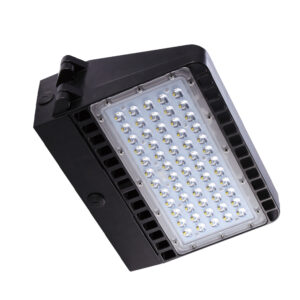
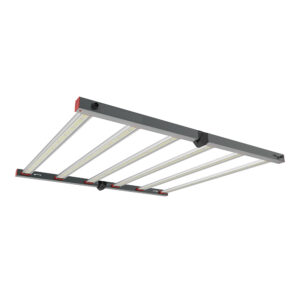

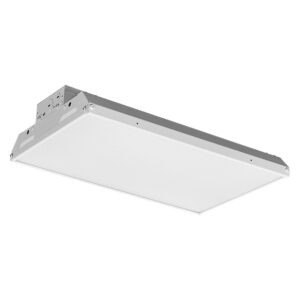
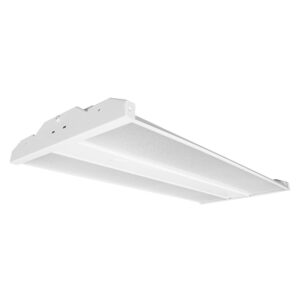
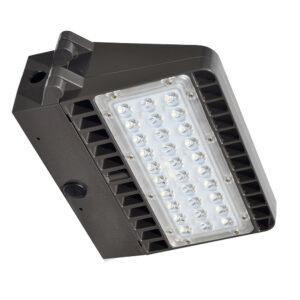

Discover the pitfalls lighting contractors often encounter when dealing with wholesale lighting companies.

Discover essential insights into architectural grid mount lights tailored for lighting contractors.

Discover the essential insights every lighting contractor needs to know about fluorescent lights.

Discover why opting for local distributors might not be the best choice when purchasing commercial sign lights in bulk.
Get notified when NEW deals are released.
Optimize your budget with wholesale discounts.
Only top-quality, specification-grade lighting products.
No additional costs at checkout - what you see is what you pay.
We understand the unique needs of contractors.